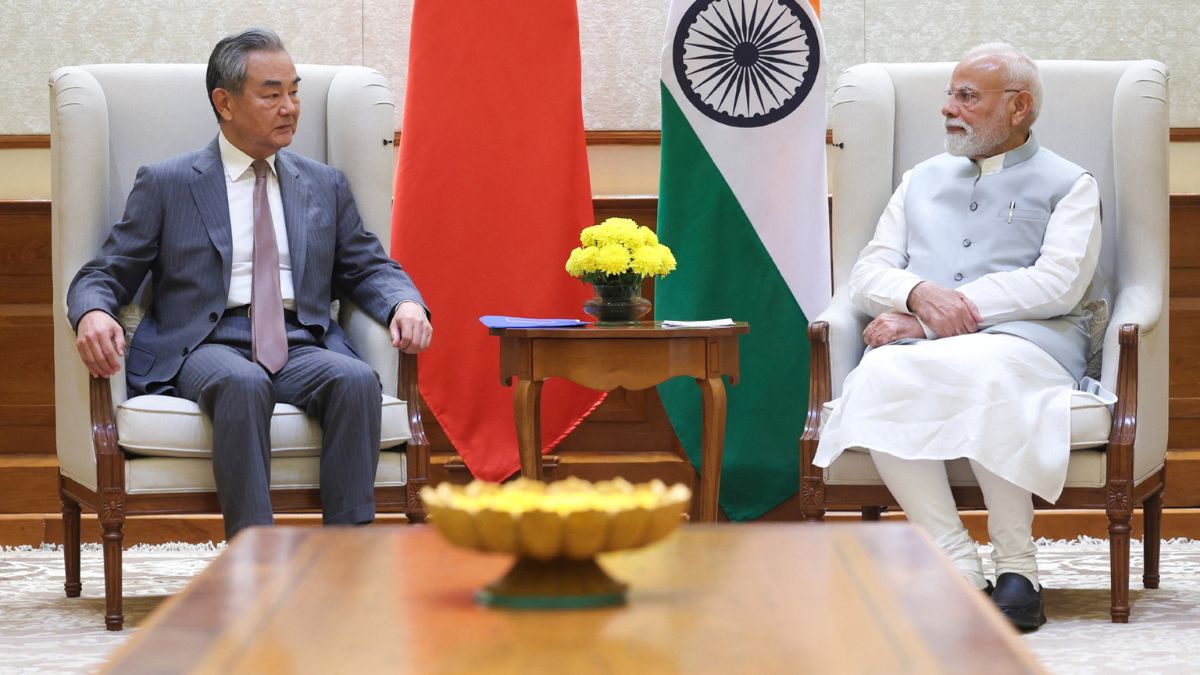It was a happy week for India’s dog lovers. The Supreme Court has modified its earlier order and allowed the release of stray dogs on the streets after their sterilisation and vaccination.
India and China are warming up ties after years of a standoff between the two Asian giants. The reset in relations was visible as China’s Foreign Minister Wang Yi arrived in New Delhi this week, holding talks with Prime Minister Narendra Modi, National Security Advisor (NSA) Ajit Doval and External Affairs Minister S Jaishankar.
India successfully test-fired the Agni-V intermediate-range ballistic missile. This comes just a few months after Operation Sindoor, when the country struck terror bases in Pakistan and Pakistan-occupied Kashmir.
Here’s all this and more in our weekly wrap from India.
1. The Supreme Court has revised its August 11 order on the relocation of stray dogs in Delhi-National Capital Region (NCR) to animal shelters. It said that stray canines can be released from dog shelters after being sterilised, dewormed and vaccinated.
However, dogs infected or suspected to be infected with rabies, and exhibiting aggressive behaviour, will not be returned to the streets. The apex court also prohibited public feeding of stray dogs, directing municipal authorities to create dedicated feeding spaces for these canines in each municipal ward. The latest order came after the top court’s previous direction created a huge uproar, with animal lovers calling it “inhumane”. We explain how the two orders differ .
Impact Shorts
More Shorts2. India and China have decided to improve ties, with Wang Yi’s visit providing a further impetus. Both sides will set up two new groups to address the border issue, one to “explore early harvest in boundary delimitation” and the other to “maintain peace and tranquillity” in the border areas. India and China are also on board to resume direct flights, which have been suspended since the Covid-19 pandemic in 2020.
The two countries will also reopen border trade through three designated trading points — Lipulekh Pass in Uttarakhand, Shipki La Pass in Himachal Pradesh, and Nathu La Pass in Sikkim. Wang’s trip to India came just days before PM Modi is set to visit the Chinese city of Tianjin for the summit of the Shanghai Cooperation Organisation (SCO). We take a look at the major takeaways from the Chinese foreign minister’s India tour .
3. Nepal has registered a protest against India and China’s decision to resume border trade through Lipulekh Pass. This comes as Kathmandu considers Lipulekh, Limpiyadhura, and Kalapani as its own territory. These areas have long been under India’s control.
India dubbed Nepal’s territorial claims to the Lipulekh Pass as “unjustified and untenable.” New Delhi said it is “open to constructive interaction with Nepal on resolving agreed outstanding boundary issues through dialogue and diplomacy.” But why is there a dispute over Lipulekh, Limpiyadhura, and Kalapani? Read our story to know more.
4. India successfully test-fired the Agni-V intermediate-range ballistic missile from Odisha’s Chandipur. Agni-V is the fifth variant of India’s long-range surface-to-surface ballistic missile. The defence ministry said the latest “launch validated all operational and technical parameters”.
The Agni-V is also India’s first intercontinental ballistic missile, a guided missile that can deliver nuclear warheads. It has a range of 5,000 km, bringing Pakistan, Turkey and even China within the missile’s target range. Should Pakistan be on alert? We take a look.
5. Delhi Chief Minister Rekha Gupta was allegedly attacked by a man from Gujarat at her Civil Lines Camp Office during a Jan Sunwai, or public hearing. According to sources in the Delhi BJP, the accused first gave some papers to the chief minister and then allegedly assaulted her. Gupta reportedly sustained injuries to her hand, shoulder and head.
The attacker was identified as 41-year-old Rajeshbhai Khimjibhai Sakriya, a resident of Gujarat’s Rajkot city. Following the attack, the Central Reserve Police Force (CRPF) has taken over the Delhi CM’s security, providing ‘Z’ category cover to Gupta. But why was she attacked? We take a look .
6. India has banned online games played with money. The Promotion and Regulation of Online Gaming Bill, 2025, was passed in Parliament this week. The legislation seeks to prohibit real-money online gaming, imposing stricter penalties on such platforms and their celebrity promoters. It also aims to encourage e-sports and online social games.
The bill outlaws all online betting and gambling, including fantasy sports and Poker, Rummy and other card games, as well as online lotteries. India’s online gaming industry is valued at $3.7 billion today, depending largely on real-money games (RMG). It was predicted to further grow to $9.1 billion by 2029. Then why has the government banned online money gaming? Read our report to find out.
7. Indian Air Force (IAF) Group Captain Shubhanshu Shukla has returned to India after staying in space for over two weeks. He met with PM Modi at the latter’s residence, 7 Lok Kalyan Marg, to discuss the Axiom-4 mission, as well as India’s ambitious Gaganyaan mission.
Had a great interaction with Shubhanshu Shukla. We discussed a wide range of subjects including his experiences in space, progress in science & technology as well as India's ambitious Gaganyaan mission. India is proud of his feat.@gagan_shux pic.twitter.com/RO4pZmZkNJ
— Narendra Modi (@narendramodi) August 18, 2025
Shukla told the PM about the many experiments he carried out aboard the International Space Station (ISS), including growing crops in space. The Indian astronaut grew ‘moong’ and ‘methi’ seeds in petri dishes on board the ISS. But how do astronauts grow plants in space? And why is space farming becoming a key aspect of space exploration? We explain here .
This is all we have for you this week. If you like how we analyse news, you can bookmark this page .


)

)
)
)
)
)
)
)
)



